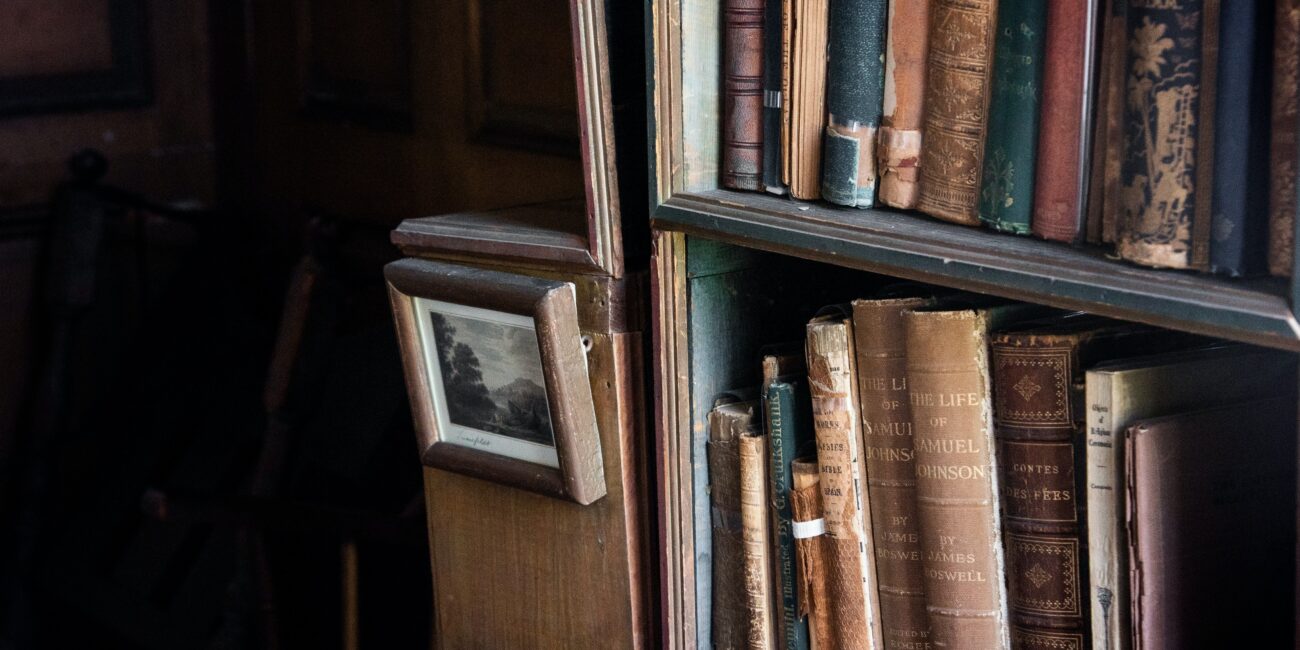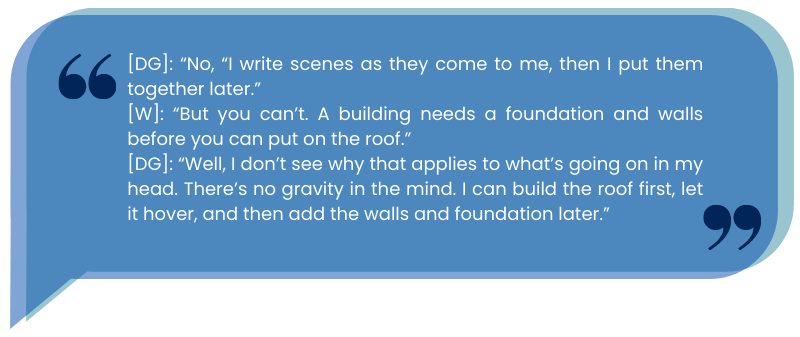The Importance of Editing: A Writer’s Perspective

When I published my first short story, it was a daunting experience. I didn’t know what to expect, how to edit, how to work with an editor, or fully comprehended the importance of editing. I was entirely in the dark, as many writers tend to be.
Since then, I’ve published a handful of short stories in various anthologies, namely Gallery of Curiosities (with an accompanying podcast episode), Bloody Parchment, and AESTHETIC. I’ve also written content for Dashing Media. Throughout all of these projects, there’s one lesson I can’t stress enough
Aside from the first draft, editing is the most important part of the writing process.
There isn’t a writer that I know of that doesn’t edit in some way, shape, or form—whether it’s as they write or by submitting their work to a professional. That’s what this post is about: giving you insight into self-editing, professional editing, and how you should approach both.
Table of Contents
Why Should You Care About Editing in Writing?
Let’s reiterate —for the people in the back—editing is the most important part of writing. Why? Because editing means getting a piece of writing as close to perfect as possible.
We live in an age where words tend to linger. It’s not the same as when you could make like Georgette Heyer or Julian Fellowes and try to bury projects you weren’t proud of.
Today, we have the internet. Today, writing sticks around.
If that’s not a good enough argument for editing, let me give you another one: Editing makes you sound less like an idiot. There, I’ve said it. And I’ve read enough of my work, as well as other people’s, to know that it’s true.
Glaring plot holes escape our notice, sources may prove unreliable, and facts we double-checked turn out to be false.
People make mistakes, but editors are trained to spot them.
Self-Editing and Rewriting: Molding Your Content
Much like how I prefer my grandmother’s sandwiches to my own, I think professional editing is more refined and the product is much more tasteful. But that doesn’t mean that I don’t make my own sandwiches.
When it comes to self-editing, there are about as many methods as there are ways to write it. One of my favourite parts of self-editing fiction is rewriting.
What Does Rewriting Mean?
When I started editing my work, I had trouble understanding what writers meant when they said “writing is rewriting”. After all, finishing the first draft of anything isn’t easy. Why would you scrap it and rewrite the whole thing?
Let’s get one thing straight—that’s not what rewriting is.
Much like writing, rewriting is up to the writer. Some writers start from scratch, as I’ve done from time to time, but it depends on how much work the draft needs. Sometimes rewriting simply involves minor fixes and adjustments, like spelling and punctuation, and sometimes it’s a whole overhaul.
Consider reaching out to your target audience for a round of beta testing. While not necessarily the most pleasant process, your readers can give you invaluable feedback that will help you gauge the required level of rewriting.
If you prefer doing a lot of research beforehand (like me), I can recommend Sanderson’s BYU lectures, and I always keep a copy of Lawrence Block’s Telling Lies for Fun and Profit on my desk (if you haven’t read it, you should).
A Personal Approach to Editing and Proofreading
When I write articles, I like to deconstruct them into sections and edit each section individually—but not to completion. The same goes for other formats too, like short stories or longer pieces. I move between the sections, picking at each one until I’m happy with it. To me, it’s one of the most effective ways to work. It gives me time to think about the other parts of the piece.
This wouldn’t work for everyone, though. Some people think linearly, moving from beginning to end. Others might even prefer to self-edit as they work—though this usually slows down the writing progress.
Take a Leaf from Diana Gabaldon’s Book
One of my favourite writing anecdotes comes from Diana Gabaldon [DG]. In a blog post, she explains her creative process to another writer [W]. I’m just paraphrasing here:

The same applies to editing. It’s personal, just like your writing. It’ll be advice that you hear repeated often enough—because it’s true. There isn’t one way to write, like there isn’t one way to edit. As long as the goal is to provide readers with the best work possible, the journey is up to personal preference.
The Importance of Professional Editing Services
When it comes to having your work edited and proofread by a professional editor, you need to understand that they’re people too. They have their own tastes, quirks, and core editing practices, so they’ll read your work through their worldview. That’s unavoidable, but a good editor will try to understand what you’re trying to write and who you’re trying to write it for.
Criticism, Creative Control, and Code Blue
Writers are usually protective over their stories. That’s natural. You’ve spent a lot of time writing, tweaking, and getting things just how you want them.
Sometimes you might disagree with an editor’s opinion. It’s happened to me more than once. Robert Frost, the editor who worked with me on The Night Bazaar (published by Gallery of Curiosities), suggested some grammatical changes, i.e. changing the story’s tenses.
I explained to him that it was a creative choice on my part, and he accepted it. Looking back, I realise that he was right. It’s a good story, if I do say so myself, but it could’ve been better.
Let’s take a look at it from another point of view.

The point? It’s to make you understand that editors are doctors. More often than not, they’re right about your work. Your story may be flatlining, in cardiac arrest, code blue. Someone needs to handle the situation.
Someone needs to either start CPR, intubate, or grab the defibrillator paddles before shouting “Clear!” and shocking the life back into the patient.
Chances are you don’t know how to do any of that. Which editing type will give that much needed breathe of life? Now, I’m not saying editors are always right. I’m just saying you better be sure you’re not wrong.
Tips for Working with Editors During the Editing Process
As I’ve said, every editor is different. They read your work in different ways and will all have their own opinions. Here are some tips that I can offer:
- Be professional: Writing is a business. Communication between you and your editor doesn’t always have to be strictly formal, but it should be respectful.
- Stick to deadlines: I know they’re irksome, but they’re there for a reason. Editors need to get their job done, and their job relies on you doing yours.
- Listen to them: It’s one of the most overlooked pieces of advice when working with an editor. It’s their job to make writing readable and relevant. They know what they’re doing.
I didn’t listen to the editing advice I received for The Night Bazaar, so when Novel Noctule accepted My Purpose in the House for publication, I listened to my editor. I didn’t want to change the dialogue, but I did—and many months later, I look back at that story and feel satisfied.
Embracing the Red Pen: Harnessing the Importance of Editing
Don’t underestimate the importance of editing and proofreading in the writing process. Did you hear me in the back? I’ll repeat it as often as I have to. I do it for your benefit as much as mine, trust me.
Okay, that’s it. Class dismissed—wait, wait! Before you rush out the door, I want to give you an assignment.
Don’t sigh like that, John. It’ll be beneficial, I promise.
Go out and read.
Yes, I know I didn’t give you a reading list. I’m sure your TBR pile is high enough to touch your ceiling. If it isn’t, might I suggest Year of Yes by Shonda Rhimes or Coraline by Neil Gaiman? The point of the assignment is to read whatever you can find. Study it, learn from it, and see what works and what doesn’t. You’d be amazed at how much you’ll learn about editing and writing just by reading.

Shaun van Rensburg
Shaun van Rensburg lives in South Africa with his cat. Over the years, he has published several short stories in various anthologies. Most recently, his first novel was published through his imprint, Pink Dove Books.
info@pinkdovebooks.com